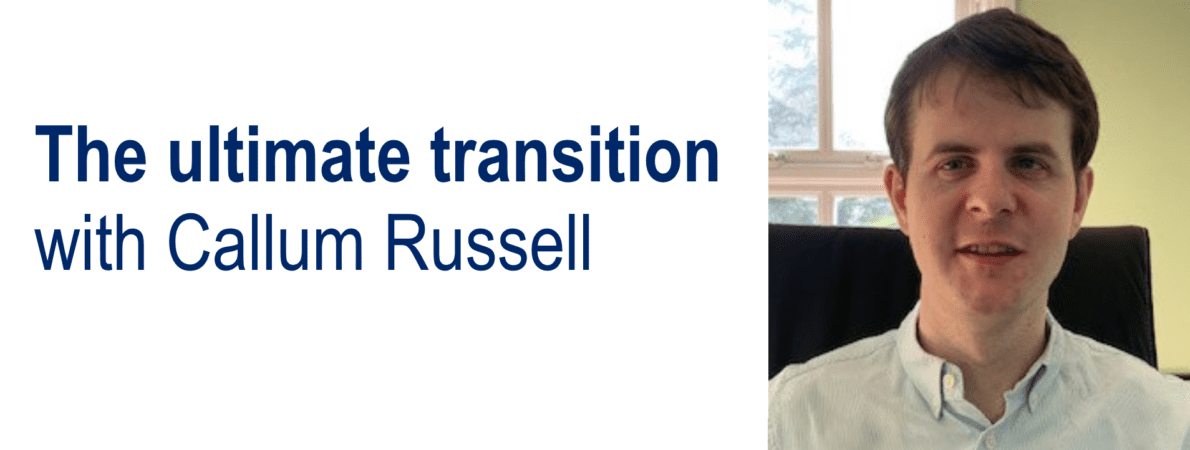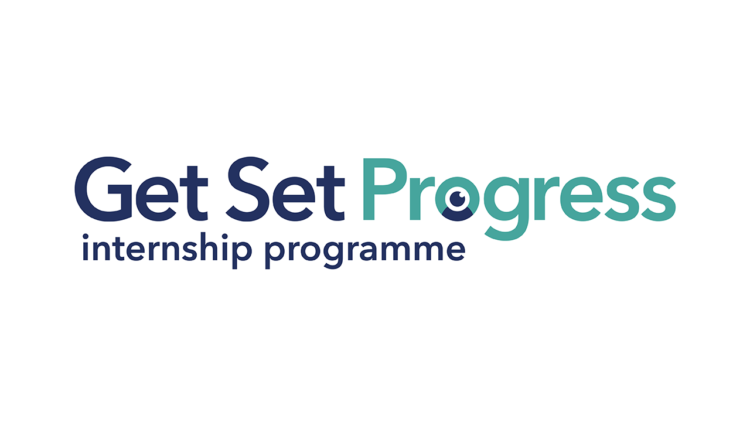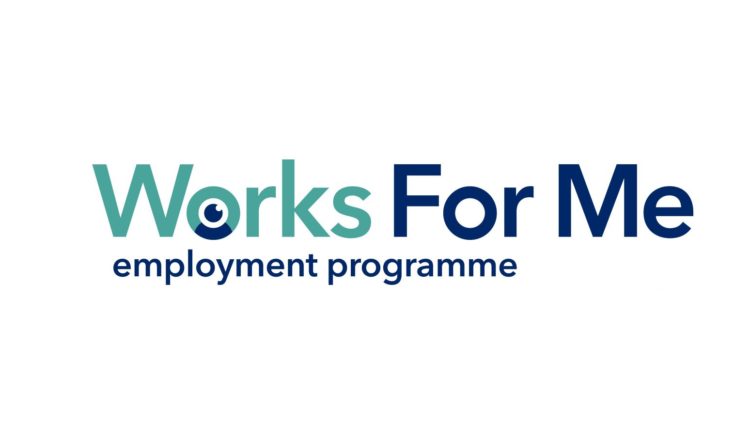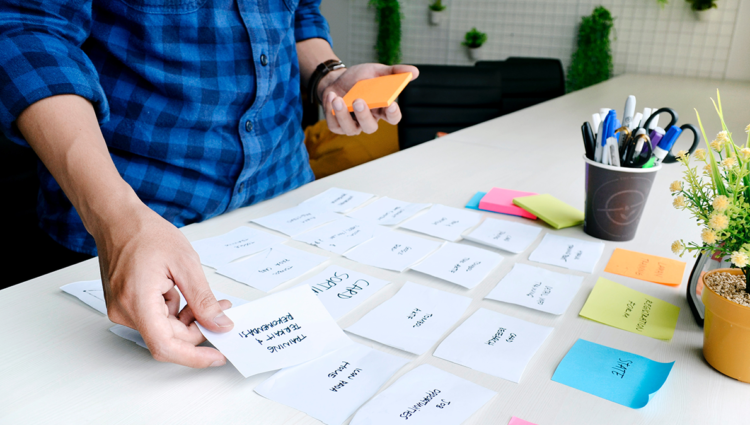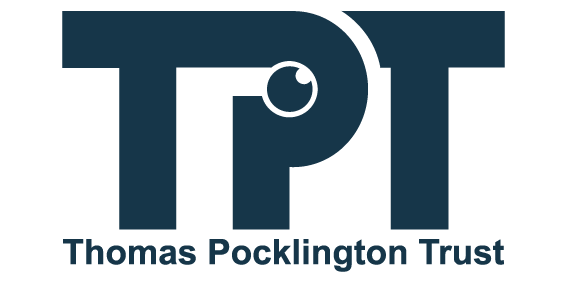The session ‘The Ultimate Transition’ on the final day of the Lost in Transition conference, held in June 2021, was engaging and solutions-focussed on how young people with vision impairment can be better supported to make the transition from full time education into employment.
It looked at the barriers to employment and possible solutions, as well as ideas on how to put these into place. The thread that ran throughout the session was the importance of putting many of the measures into place while children are still at school.
Callum Russell from CrystalEyes, a consultancy that provides tailored vision impairment support and training, led the session. Formerly a student at the University of Birmingham and a member of the steering group, Callum has been involved in the transition study almost from the start.
Attendees shared their thoughts on the barriers blind and partially sighted people might face in getting a job. These included accessing the advert for the job; accessibility of the recruitment process and online tests and tasks; if and when to declare a disability, difficulties in getting work experience to be able to demonstrate skills; low awareness among employers of accessible technology, Access to Work or the Disability Confident Scheme; employers being fearful of legal obligations through the Equality Act and their ability to implement reasonable adjustments blind and partially sighted people may need; employers having little or no experience of employing visually impaired people and the alternative perspectives and problem solving skills blind and partially sighted employees bring.
Barriers also focussed on the lack of awareness among young people of the organisations that can help them when there is no QTVI to point them in the right direction; a lack of confidence – specifically in mobility, and the energy needed in having to constantly self advocate.
The importance of work experience
Focusing specifically on work experience, Callum said: “Work experience for young people with vision impairment is valuable and essential. It builds up a wealth of experience to demonstrate skills and attributes employers would value and make use of.”
Many young people are not offered this work experience because they are often considered unsuitable. They are also often responsible for having to find their own placement. Another factor is that Access to Work does not support unpaid work placements meaning that employers would need to pay for expensive adjustments, such as screen reading software, out of their own pockets – which can be off-putting.
Ideas to secure work experience for young people:
- Schools and colleges could allow students to take equipment they use there, with the assistive tech in which they are familiar, into the work placement. Although they would be unable to access company drives, they could undertake a range of tasks.
- Consider work shadowing rather than work experience. This can sometimes be more meaningful allowing young people to observe employees in their daily job.
Low awareness of Access to Work among employers
Employers being unaware about Access to Work is a real issue as this government grant can fund adjustments in the workplace, such as accessible tech, support workers and transport to, from and within the course of work. There are limitations such as you cannot apply until you have secured a job, it does not support unpaid work experience and can take some time to put in place.
Starting young with self advocacy skills
The session talked at length around the importance of self advocacy and how exhausting students find this. Callum pointed out that many companies will never have had a blind or partially sighted employee and not know how to support their needs. It is essential young people learn how to self advocate at an early age.
He said: “This has to start at school. This will make it less exhausting later as it becomes the norm. For example, in explaining their eye condition, employers are not interested in the science. They just want to know what an employee can or can’t see and the implications of this in terms of their role. We must encourage self advocacy at an early age.”
Ensuring students are confident in mobility
Although there may be more people working from home, employers will expect employees to travel as part of their job. Not attending a meeting because you do not know where to go is not acceptable. So we need to ensure students are confident travelling by bus, train and explaining to taxis where to go.
Tech in the workplace
Assistive technology training needs to be geared around the workplace. It is fine to use iPads and braille notetakers but there are core skills students with vision impairment need to leave school with including touch typing and the ability to use Windows.
Callum explained: “Almost all employers use Windows. Students must be proficient in the basics for Word, Excel, Powerpoint and email well before they enter the job market. Employers can provide training but students need to be up to speed with the technology commonly used in the workplace. Early access to the assistive technology they are likely to use in the workplace is key.”
Summing up these points, Callum said:
“If a student has good mobility, is confident in self advocating and has a good knowledge around assistive technology, they will then have the confidence to apply for roles and challenge inaccessible arrangements.
“Work experience or shadowing gives them the confidence and ability to showcase their talent and show employers why they should be the chosen candidate. We absolutely need to look at the skills that young people are leaving school and college with.”
Ideas to implement
Attendees were invited to share their thoughts and ideas on how they can deliver their services differently. These included:
- A dedicated campaign to employers, schools and colleges raising awareness specifically around the Access to Work grant.
- Including information around taxi travel within mobility training.
- Making parents more aware of the importance of basic computer skills and touch typing for the young person’s future and starting development of these skills earlier.
- Ensuring young people gain mobility training to be able to get to college and walk around.
- Self advocacy to feature in the curriculum at an early age.
- School to gain a better understanding of what is needed. This could be done via a telepractise service which has a national pool of practitioners schools can buy into.
- Getting parents involved to fill gaps in skills.
- A checklist of key areas for services.
About CrystalEyes
CrystalEyes is a consultancy providing specifically tailored vision impairment support & training. It works with businesses, local authorities, the education sector, charities and museums, helping them to diversify their workforce, make them more inclusive and effective and support them in the requirements of the Equality Act.
Founded by Callum Russell, CrystalEyes offers training, guidance and advice to organisations on working with people with vision impairments and supports individuals to fulfil their potential.
Read more on Callum Russell’s career journey in our case study.

